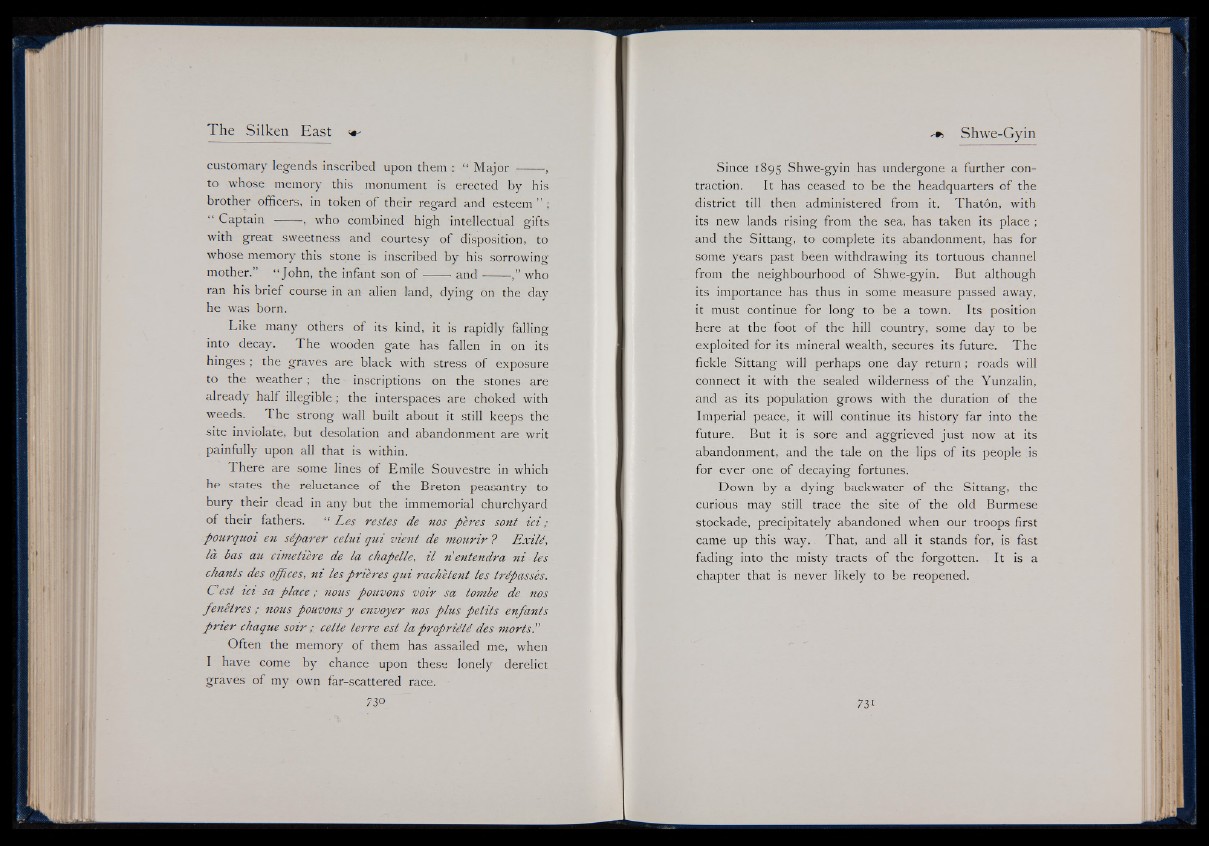
customary legends inscribed upon them : “ Major ------ ,
to whose memory this monument is erected by his
brother officers, in token of their regard and esteem ” ;
“ Captain ------, who combined high intellectual gifts
with great sweetness and courtesy of disposition, to
whose memory this stone is inscribed by his sorrowing
mother.” “ John, the infant son o f an d ,” who
ran his brief course in an alien land, dying on the day
he was born.
Like many others of its kind, it is rapidly falling
into decay. The wooden gate has fallen in on its
hinges ; the graves are black with stress of exposure
to the weather ; the inscriptions on the stones are
already half illegible ; the interspaces are choked with
weeds. The strong wall built about it still keeps the
site inviolate, but desolation and abandonment are writ
painfully upon all that is within.
There are some lines of Emile Souvestre in which
he states the reluctance of the Breton peasantry to
bury their dead in any but the immemorial churchyard
of their fathers. “ Les restes de nos pères sont ici ;
pourquoi en séparer celui qui vient de mourir ? E xilé,
la bas au cimetière de la chapelle, il n entendra ni les
chants des offices, ni les prières qui rachètent les trépassés.
Cest ici sa place ; nous pouvons voir sa tombe de nos
fenêtres ; nous pouvons y envoyer nos plus petits enfants
p rie r chaque soir ; cette terre est la propriété des morts!'
Often the memory of them has assailed me, when
I have come by chance upon these lonely derelict
graves of my own far-scattered race.
Since 1895 Shwe-gyin has undergone a further contraction.
It has ceased to be the headquarters of the
district till then administered from it. Thatdn, with
its new lands rising from the sea, has taken its place ;
and the Sittang, to complete its abandonment, has for
some years past been withdrawing its tortuous channel
from the neighbourhood of Shwe-gyin. But although
its importance has thus in some measure passed away,
it must continue for long to be a town. Its position
here at the foot of the hill country, some day to be
exploited for its mineral wealth, secures its future. The
fickle Sittang will perhaps one day return ; roads will
connect it with the sealed wilderness of the Yunzalin,
and as its population grows with the duration of the
Imperial peace, it will continue its history far into the
future. But it is sore and aggrieved just now at its
abandonment, and the tale on the lips of its people is
for ever one of decaying fortunes.
Down by a dying backwater of the Sittang, the
curious may still trace the site of the old Burmese
stockade, precipitately abandoned when our troops first
came up this way. That, and all it stands for, is fast
fading into the misty tracts of the forgotten. It is a
chapter that is never likely to be reopened.